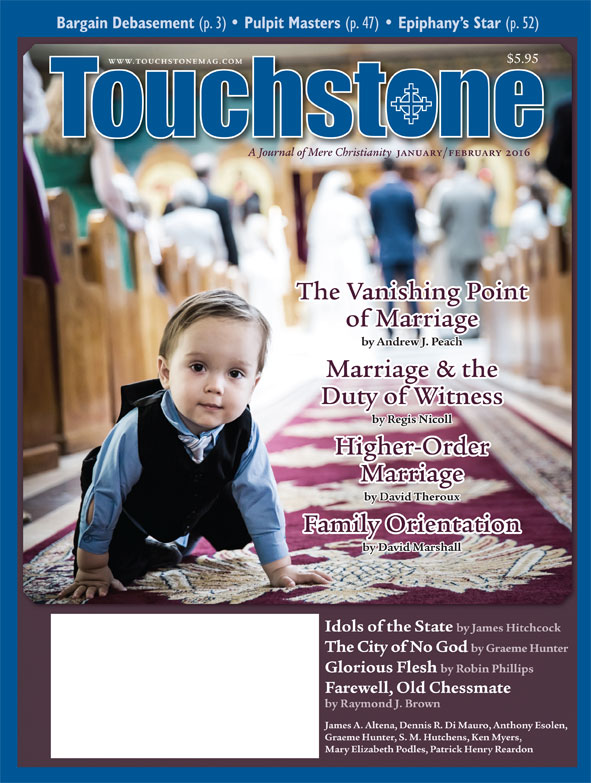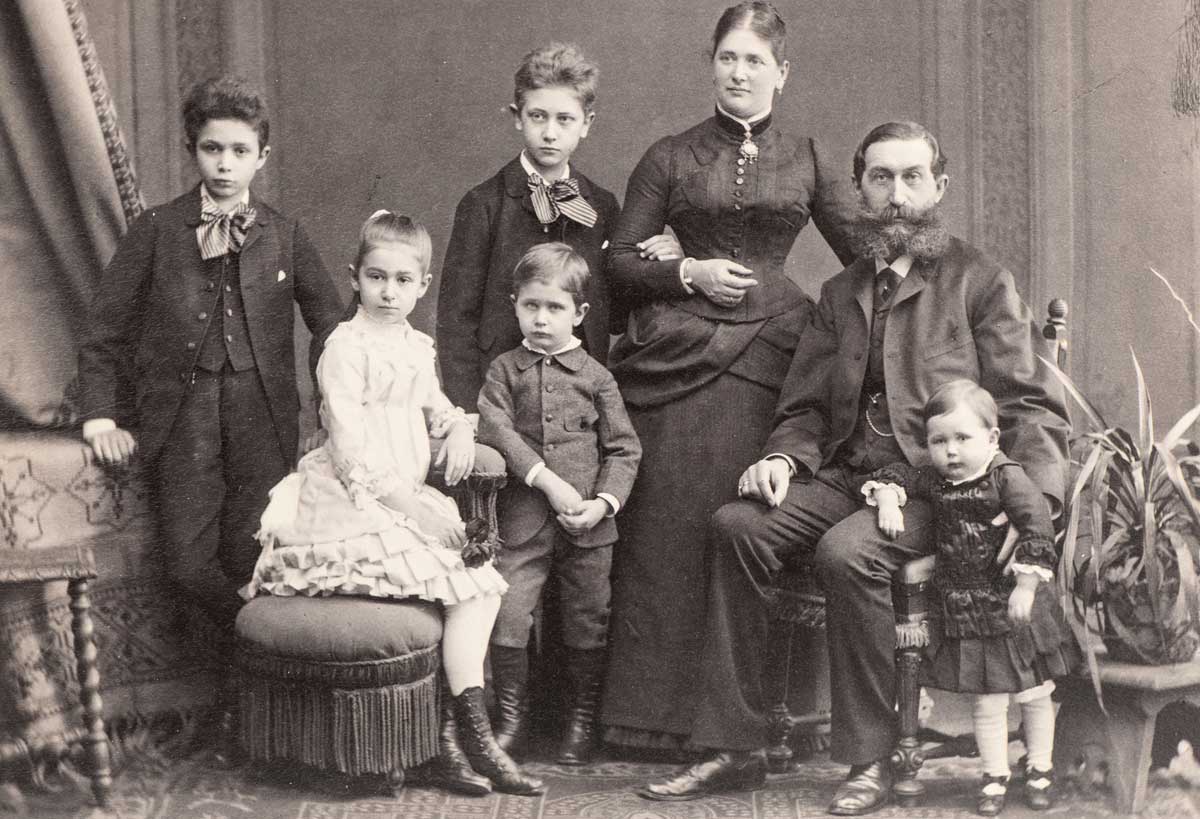Feature
Glorious Flesh
How Dorothy Sayers Taught Me the Meaning of the Resurrection
Having grown up as a Christian, I would always have said I believed in the resurrection of the body. However, the doctrine of resurrection functioned as a kind of footnote in my thinking, while my primary concern was focused on the immortality of the soul. Without giving it much thought, I simply assumed that the doctrine of resurrection was a shorthand way of referring to the salvation of the soul. Even though I had read the Gospel accounts of Christ's resurrection many times, and even though I had read Paul's lengthy discussion of bodily resurrection in 1 Corinthians 15, I still unthinkingly assumed that the resurrection of believers would be non-physical.
It wasn't until my wife urged me to listen to a recorded lecture by Edith Schaeffer that I experienced what is often called a "paradigm shift." In this lecture Mrs. Schaeffer showed from Scripture what might seem obvious by definition but was for me a new revelation: the resurrection of the body will be experienced bodily. She explained that in heaven we will have physical bodies, though of course the body will be transformed through being delivered of corruption. I still remember walking among the English hedgerows as I listened to the lecture and thinking, "Wow!"
My experience raised a question. How was it that I had been to an Evangelical Bible College and even wrote articles for Christian publications, yet somehow missed the fundamental truth that resurrection is resurrection? The question is not unique to my own experience. In the years following my epiphany, I have had occasion to talk to many people about the resurrection of the body, and I sometimes find that practicing Christians have never even heard of the doctrine. Why is this?
It wasn't until later in my life, when I discovered the writings of Dorothy Sayers (1893–1957), that I began to discern the answer to this question. According to this detective-novelist-turned-theologian, one reason why so many Christians are ignorant about resurrection stems from the influence of "Gnostic" assumptions on English-speaking Christianity.
It's easy for Christians to use the label "Gnosticism" as a kind of catchall for everything we don't like about contemporary culture. But when Dorothy Sayers used the term, it had a very focused meaning: the tendency to depreciate the physical world through positing a false antithesis between spirit and matter.
But before considering Sayers' critique of "Christian Gnosticism," let us lay out some historical background about ancient Gnosticism.
Ancient Gnosticism
"Gnosticism" is a fairly recent scholarly term used for a broad network of second-century religious movements that developed independently of Christianity but quickly took on a Christian hue. At their most basic level, these heretical movements taught that salvation could be achieved through the attainment of hidden, esoteric knowledge (gnosis in Greek). Significantly, this salvation did not involve release from sin and death, but liberation from the inherently bad material world to a realm of pure spirit.
The Gnostics saw Jesus as a messenger from the realm beyond who came to offer the chosen few the gnosis needed to awaken the divine spark within and liberate the real person from the prison of the body.
The Christology of Gnosticism differs from that of the canonical tradition by asserting that both the humanity and materiality of Christ were deceptive -appearances: Jesus merely appeared to have a body of flesh and blood. Again, the basic idea is that the realm of the spirit is at utter odds with the realm of matter, and that in order to live life in the former, one must reject
the latter.
Robin Phillips has a Master’s in Historical Theology from King’s College London and a Master’s in Library Science through the University of Oklahoma. He is the blog and media managing editor for the Fellowship of St. James and a regular contributor to Touchstone and Salvo. He has worked as a ghost-writer, in addition to writing for a variety of publications, including the Colson Center, World Magazine, and The Symbolic World. Phillips is the author of Gratitude in Life's Trenches (Ancient Faith, 2020), and Rediscovering the Goodness of Creation (Ancient Faith, 2023). He operates a blog at www.robinmarkphillips.com.
Share this article with non-subscribers:
https://www.touchstonemag.com/archives/article.php?id=29-01-033-f&readcode=3389
subscription options
Order
Print/Online Subscription

Get six issues (one year) of Touchstone PLUS full online access including pdf downloads for only $39.95. That's only $3.34 per month!
Order
Online Only
Subscription

Get a one-year full-access subscription to the Touchstone online archives for only $19.95. That's only $1.66 per month!
bulk subscriptions
Order Touchstone subscriptions in bulk and save $10 per sub! Each subscription includes 6 issues of Touchstone plus full online access to touchstonemag.com—including archives, videos, and pdf downloads of recent issues for only $29.95 each! Great for churches or study groups.
Transactions will be processed on a secure server.
more from the online archives
calling all readers
Please Donate
"There are magazines worth reading but few worth saving . . . Touchstone is just such a magazine."
—Alice von Hildebrand
"Here we do not concede one square millimeter of territory to falsehood, folly, contemporary sentimentality, or fashion. We speak the truth, and let God be our judge. . . . Touchstone is the one committedly Christian conservative journal."
—Anthony Esolen, Touchstone senior editor









